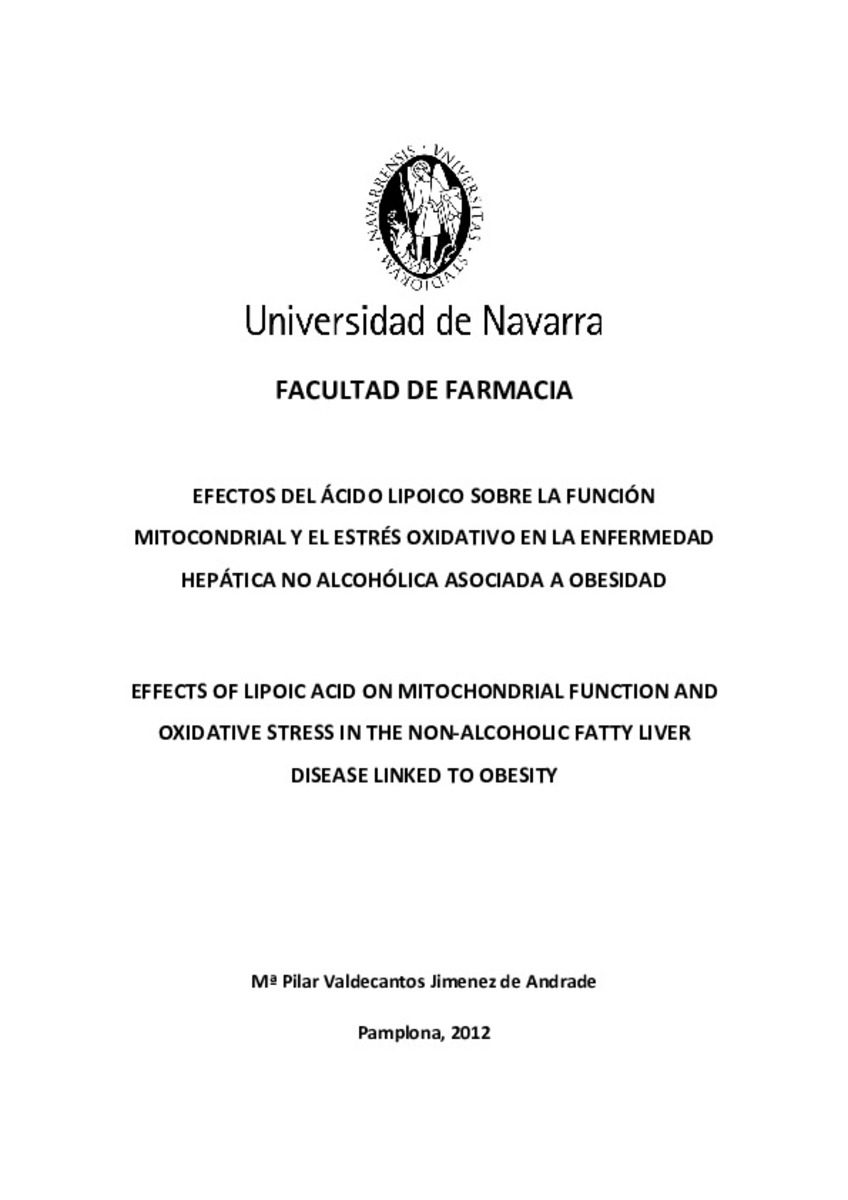Efectos del AL sobre la función mitocondrial y el estrés oxidativo en la NAFLD asociada a obesidad
Other Titles:
Effects of lipoic acid on mitochondrial function and oxidative stress in non alcoholic fatty liver disease associated with obesity
Keywords:
Materias Investigacion::Farmacia
Oxidative stress
Mitochondrial function
Obesity
Nonalcoholic fatty liver disease
Lipoic acid
Defense Date:
23-Mar-2012
Publisher:
Servicio de Publicaciones de la Universidad de Navarra
Citation:
VALDECANTOS, MP. “Effects of lipoic acid on mitochondrial function and oxidative stress in non alcoholic fatty liver disease associated with obesity”. Martínez, JA y Pérez-Matute, P. (dir.) Tesis doctoral. Universidad de Navarra, Pamplona, 2012
Statistics and impact
0 citas en

0 citas en

Items in Dadun are protected by copyright, with all rights reserved, unless otherwise indicated.







